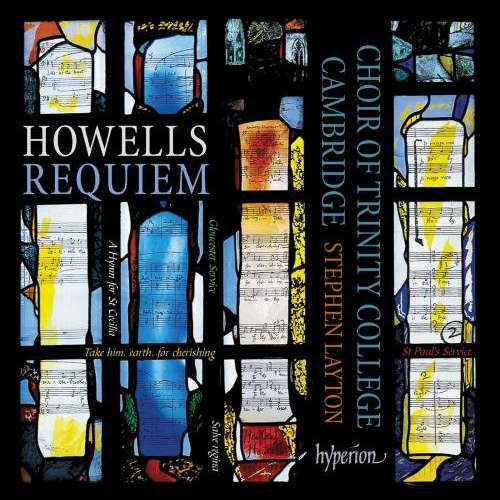 UPDATES: There's a new feature every day at Classical Music Daily. Read about the various ways we can keep in touch with you about what's happening here.
UPDATES: There's a new feature every day at Classical Music Daily. Read about the various ways we can keep in touch with you about what's happening here.

Unbelievably Delicate
GEOFF PEARCE appreciates a recording of Yoav Levanon playing Rachmaninov
'... fine performances by an exciting young pianist.'
I eagerly anticipated the arrival of this recording, as I am very fond of Sergei Rachmaninov's Études Tableaux, Op 39. These were composed in 1917 and were the last works that Rachmaninov wrote in Russia before he departed for Scandinavia and then America. He had composed an earlier set, his Opus 33, some years earlier. I have heard some of this Op 39 set singly, but the only complete set I had previously heard was the Vladimir Ashkenazy recording which I like very much.
This newest recording by nineteen-year-old Israeli pianist Yoav Levanon is very good, but quite different from the Ashkenazy set. Which one do I prefer? Well to be honest, I don't know. Both are very musical and technically very fine, but on balance Ashkenazy brings a little more emotionally, I think. Another fine pianist I have heard play some of these works is Yuja Wang - another pianist I am very fond of - and her approach is closer to Ashkenazy. Believe me though, if you like the other performances, you are going to equally enjoy this one.
The first étude, marked Allegro Agitato, is quite a tempestuous affair, but within it, there is a great deal of contrast. Whatever images Rachmaninov had in his mind when he wrote these pieces, he kept to himself, but I can imagine a rather dark and stormy night.
Listen — Rachmaninov: Allegro Agitato (Études Tableaux, Op 39)
(5054197822513 track 1, 1:27-2:12) ℗ 2024 Parlophone Records Ltd :
The second étude, Lento assai, starts tenderly and rather delicately, as in a nocturne. It is a very beautiful movement and the pianist reveals his superb cantabile playing and thoughtful introspection. In the middle, the music becomes more passionate and the pianist reveals his quick response, agile finger work. I love the weight he gives to the different registers of the piano, depending on the content, and some of his playing is unbelievably delicate.
Listen — Rachmaninov: Lento assai (Études Tableaux, Op 39)
(5054197822513 track 2, 4:22-5:06) ℗ 2024 Parlophone Records Ltd :
The next, Allegro molto, requires quite a dazzling technique to bring out both the dramatic nature of the music, but also the playfulness.
Listen — Rachmaninov: Allegro molto (Études Tableaux, Op 39)
(5054197822513 track 3, 1:21-2:00) ℗ 2024 Parlophone Records Ltd :
The fourth, Allegro assai, is overall a light-hearted movement, as if it were two lovers having a conversation with banter.
Listen — Rachmaninov: Allegro assai (Études Tableaux, Op 39)
(5054197822513 track 4, 2:40-3:15) ℗ 2024 Parlophone Records Ltd :
Appassionato is a rather brooding piece, as one would expect. It is somewhat despairing, I feel. There is a middle section where the intensity is taken out of this passion, but it builds up again. Like much of the music of Rachmaninov, there is a high technical requirement, and also considerable emotional maturity, and this young pianist fulfils both requirements.
Listen — Rachmaninov: Appassionato (Études Tableaux, Op 39)
(5054197822513 track 5, 2:38-3:12) ℗ 2024 Parlophone Records Ltd :
No 6, Allegro, is a mixture of quite a few elements, and is a bit angry at times, but it is not anguished. It is probably the most varied of the pieces as far as emotions is concerned, and again Yoav Levanon impresses me with his quick responses and clear understanding.
The seventh étude, Lento lugubre, is quite a difficult piece to bring off. Yes, there is a mournfulness about it, and there is very effective use of silence, which must be very carefully managed or it sounds stilted. Again this young pianist recognises this, and the middle section, which is a rather mysterious contrast, almost takes my breath away by the delicacy of his touch and fine articulation.
Listen — Rachmaninov: Lento lugubre (Études Tableaux, Op 39)
(5054197822513 track 7, 2:58-3:44) ℗ 2024 Parlophone Records Ltd :
Allegro Moderato reminds me of a small stream as it courses over a gravel bed. I think this is what the composer intends, that the performer (and also the listener) conjures up images that feel relevant at the time.
The final étude, Allegro moderato. Tempo di marcia, is another quite contrasting movement, at times quite grand and almost bell-like, at other times quite tender and almost coquettish, and at others quite martial and celebratory.
Listen — Rachmaninov: Allegro moderato. Tempo di marcia
(Études Tableaux, Op 39)
(5054197822513 track 9, 2:21-3:12) ℗ 2024 Parlophone Records Ltd :
Any lover of Rachmaninov's music, and piano music in general, is going to thoroughly appreciate these fine performances by an exciting young pianist. The release though is not generous as far as length is concerned, and it is a pity that the producer did not include the Op 33 set as well. However this is a very fine release that I am grateful to have.
Copyright © 6 February 2024
Geoff Pearce,
Sydney, Australia





